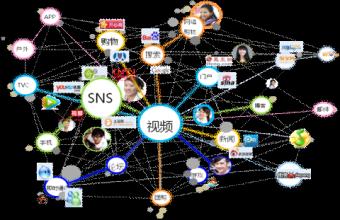读书点亮生活,华中科大的宿舍管理员周凤琴深刻地体会到了这点。日前,这位普通的宿管阿姨就以个人读书经历为学生们带来一场讲座。Zhou Fengqin became a campus celebrity recently. The 57-year-old dormitory supervisor was invited by Li Peigen, president of Wuhan-based Huazhong University of Science and Technology, as a special lecturer on reading for students, as World Book and Copyright Day approached on April 23.
周凤琴最近成了校园名人。在4月23日世界图书与版权日来临之际,这位57岁的宿舍管理员受华中科技大学校长李培根的邀请,作为一位特殊的演讲人为同学们献上了一场关于读书的讲座。
During her 10 years of service, Zhou has read hundreds of books from the university library by borrowing students’ library cards.
在她工作的十年时间里,周凤琴借来一些同学的借书卡,从校图书馆借阅了几百本书。
“Reading is such a blessing; cherish it because you are lucky to have such top-class facilities on campus,” Zhou told the students.
“读书是福气,要珍惜你现在有幸拥有的这些一流的校内设施。”周凤琴对学生们说。
But experts see problems in the reading habits of students, warning that they are reading in a fragmented, pragmatic and insufficient manner, which undermines their ability to think, comprehend and analyze.
而针对学生的读书习惯,专家们也发现了一些问题。他们提醒道,学生们现在阅读量太少,阅读习惯碎片化、功利化,这削弱了得他们的思考以及解析能力。
Scholars therefore suggest immersive reading as a way to improve the personal cultivation of students and their aesthetic taste.
因此,有学者建议采取沉浸式阅读,以此来提高学生们的个人修养与审美品位。
Insufficient and fragmented
阅读量不足且阅读碎片化
The interest of college students in reading books has been eroded by the Internet.
网络侵蚀了大学生们的读书兴趣。
According to a survey by Xiamen Evening News last year, 43 percent of college students in the city read for less than an hour every day, while 48 percent of college students spend more than four hours online on a daily basis.
《厦门晚报》去年曾做过一项调查,结果显示,厦门43%的大学生每日阅读时间不足1小时,而48%的学生平均每日上网超过4小时。
“The overdependence on the Internet for information leads to skipping logic and superficial analysis,” said Zhu Gang, dean of the School of Foreign Studies at Nanjing University. “They are too distracted by the scattered information to think deeply.”
“对网络信息的过度依赖导致了跳跃性的逻辑思考和浮浅的分析能力逻辑。”南京大学外国语学院院长朱刚表示。“散乱的信息使得学生们无法集中精力、深度思考。”
Hou Yiling, English literature professor at Beijing Foreign Studies University, agrees. It’s not that students aren’t reading enough information, it’s the way they are reading that has become problematic, he said.
北京外国语大学英语系教授侯毅凌对此表示赞同。他说,并非学生们阅读的信息量不够,而是他们的阅读方式出了问题。
“In an era of information explosion, students read information in a large quantity,” said Hou. “However, this information is highly fragmented and inconsistent, which holds little value for thought training.”
“在这样一个信息爆炸的时代,学生们阅读着大量的信息。”侯教授说。“然而这些信息是高度碎片化且不连贯的,这对思维训练毫无价值。”
Instead, Hou suggests “immersion reading”, in which students spend time reading books in a consistent manner in order to focus their attention and organize their newfound perspectives.
因而,侯教授推荐“沉浸式阅读”。为了集中精力并形成新视角,这种方式需要学生花时间坚持持续阅读。
“It takes time to form integrated thoughts before venturing into deeper comprehension and analysis,” said Hou.
“在尝试深入理解和分析前,要花大量时间来组织整体思路。”侯教授说。
Pragmatic trend
功利性阅读趋势
Luo Yuming, Chinese literature professor at Fudan University, sees a trend of pragmatic reading among students.
复旦大学中国语言文学系教授骆玉明发现了学生们的功利性阅读趋势。
In a 2011 survey conducted by China Youth Daily, 56.7 percent of recipients said they wanted to read “more practical” books. The books most frequently read by young people in China are about succeeding in exams and career life. Classics are no longer at the top of the list.
《中国青年报》2011年所做的一项调查显示,56.7%的受访者表示想读些“更实用的”书籍。中国年轻人最常阅读的是一些考试指导以及职业指南。经典文学已不在读书榜单的前列。
“Facing intense competition, people now expect a material return from taking time to read,” said Luo. “When life attitudes slant toward materialism, young people turn their backs on classic literature and philosophy.”
“面对激烈的竞争,如今人们期望从阅读中收获实际效用。”骆教授说。“当生活态度倾向于物质主义时,年轻人也纷纷摒弃了古典文学与哲学。”
But Hou insists students pick up humanity texts and classic works of literature for their own good.
但侯教授一再强调,多去了解人文作品和古典文学对学生自身大有益处。
“The habit of reading, to some extent, reflects whether students have been well educated,” said Hou. “The aesthetic taste developed by reading will influence their life quality in the long term.”
“在某种程度上,阅读习惯会反映出一个学生的受教育程度。”侯教授说。“阅读会带来审美品味的提升,进而会对他们的生活质量产生长远影响。”
After Zhou Fengqin’s lecture on how she enjoyed reading without any “practical” pursuits, president Li Peigen from Huazhong University of Science and Technology sent her a postcard, which said: “Reading and dreaming make your life very beautiful.”
周凤琴在讲座上与学生交流了自己不带功利性地去享受阅读的快乐,结束后华中科技大学校长李培根送给她一张明信片,上面写着:“读书和梦想使你的人生更加美丽。”

 爱华网
爱华网



